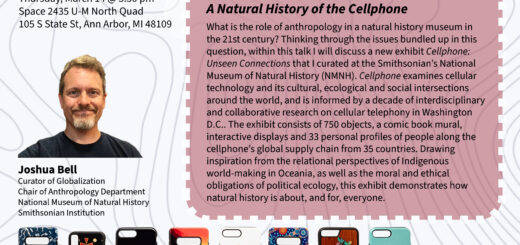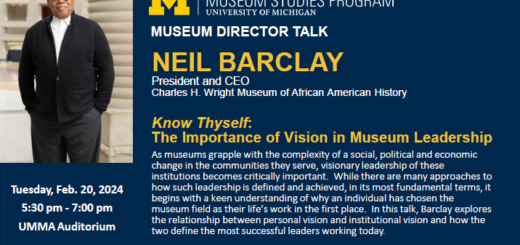Data, Archives, and Information Seminar: Tonia Sutherland – starts Dec 9

Data, Archives, and Information Seminar
Speaker: Tonia Sutherland, University of Hawai’i at Mānoa
Title: On Chatbots, Tupac, and Black Mirror: Digital Resurrection in the 21st Century
Abstract:
Our data doesn’t just disappear when we die. Particularly concerned with the ways Black people’s (and others whose lives are lived in the margins) lives are commodified after death through digital resurrection practices, this talk interrogates what happens when data created by, for, and about people is used to reanimate the dead. Previewing material from her book-in-progress, Digital Remains: Race and the Digital Afterlife (University of California Press) as well as examining other critical digital resurrection cases, Tonia Sutherland carefully tracks sociohistorical interactions between humans and their data alongside recent developments in digital resurrection and other postmortem data technologies. Sutherland’s talk offers a thoughtful discussion of new issues that are arising from the scale and speed of personal data creation, capture, collection, use, and reuse, offering a critical lens through which to consider how we might each curate our own digital afterlives.
Related paper attached
Bio:
Dr. Tonia Sutherland is assistant professor in the Department of Information and Computer Sciences at the University of Hawaiʻi at Mānoa. Prior to joining the faculty at UHM, Sutherland was an assistant professor in the College of Communication and Information Sciences at the University of Alabama. Sutherland holds a PhD and an MLIS from the University of Pittsburgh’s School of Computing and Information (formerly the School of Information Studies), and a BA in history, performance studies, and cultural studies from Hampshire College. Global in scope, Sutherland’s research focuses on entanglements of technology and culture, with particular emphases on critical and liberatory work within the fields of archival studies, digital studies, and science and technology studies (STS).


